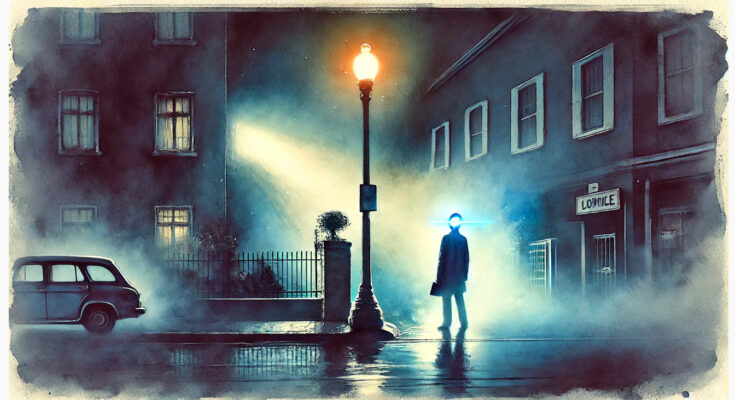What’s the Point of the Blink Twice Movie?
A Thriller with Teeth
The allure of paradise is often tinged with dark undercurrents, and in Blink Twice, the idyllic island retreat offered by a tech billionaire soon turns into a suffocating trap. What begins as a luxury escape quickly devolves into a searing commentary on the abuse of power and the erosion of memory.
Directed by Zoë Kravitz, this 2024 psychological thriller is much more than a tale of suspense—it’s a brutal exploration of how privilege, control, and complicity intersect in an age where the rich can erase not just crimes, but the very memories of those they harm.
In Blink Twice, Kravitz doesn’t simply ask viewers to buckle in for a ride through mystery and horror. She invites them to reckon with uncomfortable truths about the systems that enable the powerful to manipulate, abuse, and escape accountability.
At its core, the film is a critique—a layered interrogation of power, memory, and complicity in a world where survival often means confronting or becoming the very forces that seek to oppress.
Surface Allure, Dark Depths: The Plot Unpacked
Frida, a woman caught in the web of an elite man’s fantasy island, starts her journey expecting an escape from her mundane life. But what begins as an exclusive invitation to a private getaway quickly turns into a horrifying spiral into manipulation and memory erasure.
As women around her begin to disappear, suffer strange lapses in memory, and behave out of character, Frida starts to uncover the dark underbelly of their luxurious surroundings.
The film’s central twist is as shocking as it is unsettling: the women are being drugged with a perfume derived from a rare, native flower that erases their memories of sexual violence.
With every new revelation, the film pulls the viewer deeper into its exploration of how far the powerful will go to protect themselves from the consequences of their actions. As Frida uncovers the truth and seeks to reverse the damage done, the true horror of the island is revealed—not just the physical violence, but the insidious way in which memories themselves are weaponized.

Abuse and Amnesia: The Cost of Power
At the heart of Blink Twice lies a chilling critique of power. Slater King, the billionaire mastermind behind the island’s nightmare, isn’t just a villain in the traditional sense.
He’s a symbol of the systemic abuse that thrives on wealth, privilege, and the unchecked influence of the elite. The perfume—used to erase the memories of the women—becomes a tool of control, a metaphor for how power structures often manipulate reality to maintain their hold.
The erasure of memories in the film reflects a disturbing real-world truth: those in power often have the means to distort or wipe away the legacies of their wrongdoings.
In Blink Twice, memory itself becomes a battleground, and the cost of power is not just measured in wealth, but in the deliberate obliteration of truth.
Memory, Truth, and the Struggle to Reclaim Self
In Blink Twice, memory isn’t just a plot device—it’s a central character in the fight for survival. The act of remembering, in this world, is an act of resistance.
The snake venom antidote that allows Frida to restore lost memories symbolizes the arduous journey of confronting trauma and reclaiming one’s agency.
This process isn’t without its dangers; as the women begin to remember, they must face the full weight of their experiences—and the choices of those around them.
One of the most powerful symbols in the film is the “Red Rabbit,” a recurring motif that represents both innocence lost and the courage to confront the truth.
Frida’s journey to restore her own and others’ memories becomes a powerful metaphor for reclaiming selfhood and agency in the face of overwhelming forces. The struggle to remember, to confront the past, is not only a fight for justice but also for the right to define one’s own story
The Gray Zone: Complicity and Choice
In Blink Twice, the question of complicity is ever-present, and it’s not limited to the men who perpetrate the abuse. The film sharply explores the choices of bystanders, particularly through the character of Stacy, one of the women on the island who seems willfully ignorant to the atrocities unfolding around her.
Stacy’s avoidance of the truth becomes a mirror for how privilege often breeds indifference—a luxury that allows some to remain blind to the suffering of others. Her character serves as a chilling reminder of how comfort can override conscience, especially when one has the means to escape uncomfortable realities.
But Stacy’s complicity is not an isolated case. The spectrum of complicity is wide, and Blink Twice invites the viewer to question how much responsibility falls on those who remain passive in the face of injustice. In contrast, Frida becomes the foil to this mindset. While Stacy represents inaction, Frida represents active resistance and moral courage.
She chooses to not only confront the horrors around her but also to challenge them head-on. Her moral clarity stands in stark opposition to the other women, who are either unaware or too afraid to take action. Through Frida, Kravitz underscores a vital message: complicity is a choice, and while ignorance may offer temporary comfort, it ultimately enables the system of abuse to thrive.

Empowerment or Eclipse? The Provocative Ending
The film’s ending is as provocative as it is ambiguous, leaving viewers to wrestle with its unsettling moral complexities. After Frida escapes the island, she doesn’t walk away as a survivor seeking justice—she marries Slater and becomes the CEO of his company, effectively taking control of the empire built on exploitation.
This twist forces us to confront an uncomfortable question: Is Frida’s final act one of empowerment, or has she simply become the very thing she fought against?
In seizing power, Frida’s actions blur the line between victory and corruption. Is she truly reclaiming her agency, or has she been co-opted by the very system that once oppressed her? The film doesn’t provide an easy answer. Instead, it leaves us to ponder whether true justice can ever be achieved within a system that is inherently flawed, or if survival and power come with an inevitable moral compromise.
This ethical ambiguity makes Blink Twice even more haunting. It raises profound questions about the cost of power, the price of survival, and the potential corruption of those who attempt to dismantle oppressive systems. Are we ever truly free, or are we always bound to the systems we try to escape?
Sisterhood as Survival
Despite the chilling themes of power and abuse, Blink Twice is not without hope, and it’s through the bond of sisterhood that this hope is most powerfully conveyed. Frida’s alliance with Sarah, one of the women who aids her in uncovering the truth, becomes a catalyst for the liberation of the other women on the island.
Their solidarity is more than just a narrative device—it represents the strength found in collective resistance. By working together, they are able to defy the manipulation of their memories and reclaim their stories.
This sisterhood stands as a vital counterpoint to the isolation and exploitation that pervade the rest of the film.
The women’s shared struggle against the forces that seek to erase them becomes a beacon of collective power, showing that survival isn’t just about individual resistance—it’s about uniting to challenge systems of oppression.
In the face of unimaginable trauma, their unity is not just a means of survival, but an act of defiance, a refusal to be silenced.
Underneath the horror of Blink Twice lies a thread of hope: that even in the darkest moments, solidarity and resistance can create a path forward.
Conclusion
At its core, Blink Twice is a film about confronting the uncomfortable—those truths we often choose to ignore or erase. Through its layered narrative of abuse, memory manipulation, and power, the film forces viewers to reckon with uncomfortable realities about complicity, justice, and the erasure of trauma.
In a world where abuse can be silenced, where memory can be manipulated, and where power structures remain unchallenged, Blink Twice asks one crucial question: what happens when we choose to forget, and what happens when we choose to remember?
The film makes a radical argument: remembering is not just a personal act—it is a political one. In a society that thrives on forgetting, the act of reclaiming memory is an act of rebellion, an assertion of agency, and a refusal to let the past be erased.


